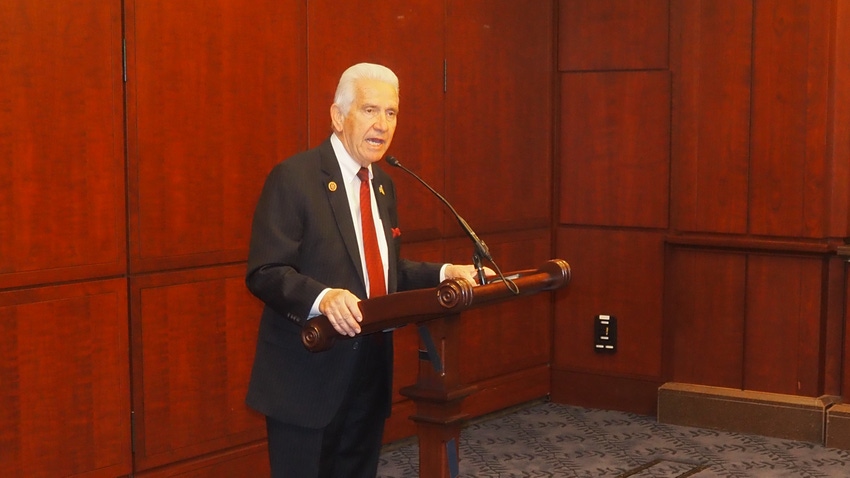
California’s U.S. Rep. Jim Costa is cosponsoring a bipartisan bill in Congress that would ease restrictions on truck weights to keep supply chains moving during emergencies.
The federal government currently gives states authority to waive federal weight limits on the interstate system, but those waivers must be enacted through special permits that may be issued if the president has declared a major disaster in a region.
However, many emergencies – including, most recently, COVID-19 – don’t meet the standards. So Costa and Rep. Dusty Johnson, R-S.D., introduced the Modernizing Operations for Vehicles in Emergencies (MOVE) Act to provide more flexibility.
“During times of emergency and the pandemic, struggling communities in my district were hit hardest by roadblocks to our supply chain,” said Costa, a key Democrat on the House Agriculture Committee. “This bipartisan legislation will remove barriers that prevent us from delivering vital relief when communities need it most.”
According to Costa’s office, the MOVE Act:
Expands the circumstances under which the federal government would allow a state to waive federal weight limits on the interstate system to include declarations by governors, including declarations regarding disease and those regarding challenging supply chain conditions.
Enables declarations to remain in effect for 270 days to allow for time needed to respond to conditions, compared to the 120-day maximum in place now.
The bill is supported by shipping industry groups, including the American Trucking Association and the Shippers Coalition. Sean Joyce, the Shippers Coalition’s executive director, said the legislation is a necessary step in ensuring that the organization’s members can promptly and efficiently respond in times of crisis.
“When hospitals and nursing homes are low on medicine, families are running out of food and water, and electricity is nonexistent, the last thing communities responding to natural disasters should have to worry about is bureaucratic red tape delaying truck drivers from moving relief supplies as quickly as possible,” ATA president and chief executive officer Chris Spear said.
Introduced earlier this year, the legislation is being considered as the March 26 collapse of the Francis Scott Key Bridge in Baltimore is causing logistical nightmares throughout the East and Midwest. The ATA has estimated that some 4,900 trucks per day carrying an annual average of $28 billion worth of goods will have to be re-routed, at a cost to shippers and consumers.
Costa, of Fresno, represents the central San Joaquin Valley.
About the Author(s)
You May Also Like






